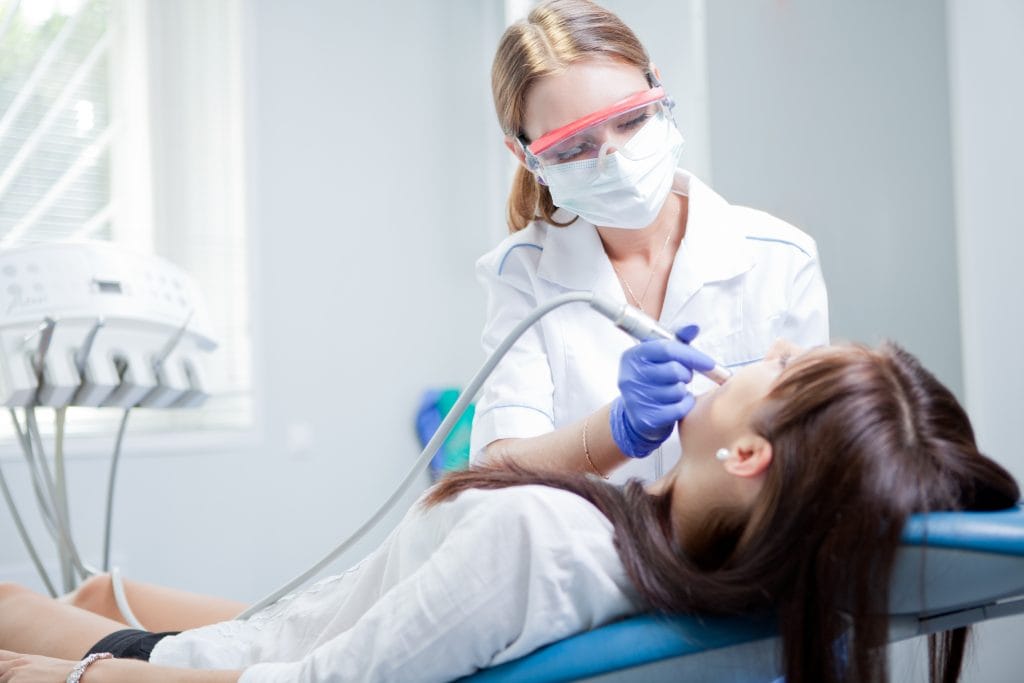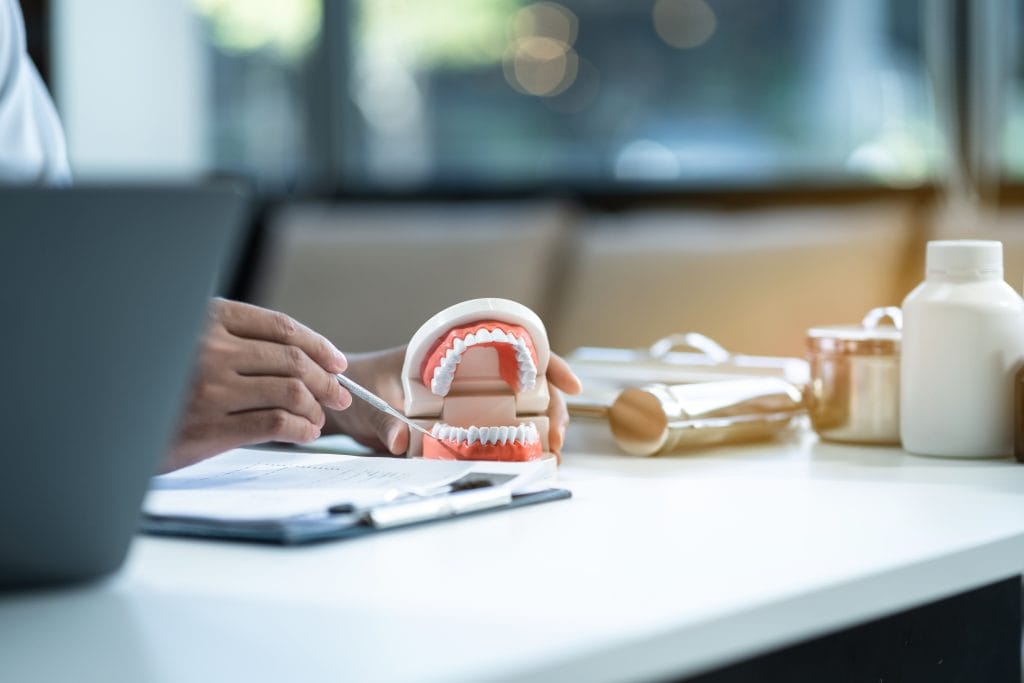Last updated on September 23rd, 2024 at 09:09 pm

What’s the point of marketing? What are we spending all that money and time for?
When we market our practice, or any business for that matter, the whole point is for the phone to ring.
And when that phone rings, and a new patient is calling in, they expect to be greeted by a real person who can answer their questions and schedule their appointment. But as I go around the country delivering seminars with MGE and meet with doctors, I encounter a lot of offices that are missing out on new patients because the phones aren’t being answered properly. It’s usually for these reasons:
1. Phone calls are being ignored when the front desk is very busy.

Obviously, the patient that is there in front of you is the most important person at the moment, so I don’t want you to ignore or upset that person – BUT new patient phone calls are simply too valuable to be ignored. So, you’ll have to work out some solution to work the phones while there’s a patient at the front desk. Maybe you have another team member available as backup if the receptionist is occupied. Or if there is no backup, then you may have to apologize quickly to the patient in front of you, answer the phone quickly and ask the caller if you can put them on hold for a moment before helping them.
(Related: 3 Techniques to Improve Employee Phone Skills)
The important thing here is that you don’t answer the phone too abruptly and just say “Hold please!” You can keep it pleasant without spending too much time, for instance “Thank you for calling ABC Dental! Can you please hold for one moment?” Then you can finish helping the person in front of you before returning to the phone call.
2. The phone is allowed to ring five or six times before it is picked up.
It’s always good practice to answer the phone in less than three rings. When it goes too long, callers may either hang up or it’s just poor customer service and makes it seem like their call isn’t important.
(Related: How to Create First-Class Customer Service in a Dental Office)
3. Nobody answers the phone during the lunch hour.
Look, we want your office to take a peaceful lunch everyday. In fact, we have a two-day seminar The Art of Scheduling Productively, where we show you how to produce more in less time, while taking a peaceful lunch and going home on-time every day. And we also teach this scheduling system on our online training platform at www.ddssuccess.com.
BUT…
(Related: Dr. Winteregg’s Dental Office Scheduling Policies, Part 1)D
Lunch time is one of the most popular times for phone calls to come in. People call over their lunch break at work. Someone needs to be available to answer the phone at this time. You may have to offset one team member’s lunch, so they are eating at 12:00 while everyone else eats at 1:00 or vice versa so they can answer the phone.
4. Using an automated phone system.
You know these systems, like when you call a bank or insurance company and a robotic voice comes on, “Press 1 for ___. Press 2 for ____…” etc. This can seem very convenient. It allows you to direct different calls according to the subject, and if the receptionist isn’t available, the call still get’s “answered.”
(Related: Reminder and Confirmation Procedures for Your Hygiene Department)
However, it is extremely impersonal, and you will get people hanging up the phone in frustration because they just wanted to talk to a real person and ask them a question. Your office shouldn’t be like a bank or major corporation.
When the new patient calls and their first impression is an automated phone system, it can make them feel as though they’re not important or that the practice doesn’t care – which makes them want to find a dental practice that will listen and talk to them. Think about it – the last time you got an automated answering system was probably when you called a bank or an insurance company, and you most likely felt pretty frustrated with the different menus and probably thought to yourself, “I just want to talk to a real person!”
(Related: 3 Ways to Improve New Patient Conversion)
So, let’s not make our new patients feel frustrated or confused before they get a chance to step into the practice. They may have an emergency or an important question they want you to answer regarding their oral health, which is why it is vital that you have somebody there to answer the phone, greet the patient and let them know that they are going to be well taken care of.
I’ve seen automated phone systems with six or seven different options for patients to press, and the sixth one often says, “if you’re a new patient, press six.” Truth is, by the time they get to the second or third option, they’ve probably hung up the phone and they most likely won’t be calling again and you just lost a new patient. So, your marketing might not seem like it’s as successful because when people are calling in they’re either getting a voicemail or they’re getting a confusing system and they don’t receive a call back from your office.
(Related: 5 Ways to Improve the Patient Experience)
So, don’t use automated phone systems during the day. I’ve seen our clients here at MGE increase their new patients by 10 or 15 per month just by simply answering the phones and ditching the automated message systems.
5. Failing to return voicemails promptly.
Obviously, you can’t answer the phones 24 hours a day. Although, it is possible to forward the phones to an answering service after the office closes for the day, and this can be a great idea if you receive a high volume of calls. In fact, we have a client that sees over 200 new patients a month, and they experienced a great new patient boost by hiring someone to answer the phones after closing until 9:00pm. Turns out there were quite a few people calling around in the evening, and this client’s office was the only one that answered, so they got these new patients. This probably wouldn’t be worth the expense, though, in a smaller office with a lower volume of calls coming in.
(Related: Free Ebook: The MGE Guide to Improving Customer Service)
At any rate, calls can come in after-hours, and these should all be returned promptly. You would think this is obvious, but you may be surprised by how often it doesn’t happen.
So, make sure your front desk is checking the voicemail first thing in the morning, and returning calls quickly. And then the voicemail should be checked throughout the day – not just in the morning. Ideally, there won’t be any mid-day voicemails because you’ll be answering the phone, but just in case, it’s good to check.
6. Not training the front desk on how to handle phone calls properly.
Even if you are answering the phones, chances are you’re still missing out on potential new patients because the front desk is mishandling questions like, “How much do you charge for a crown?” “Do you take my insurance?” “Do you have an appointment available at 2:00?”
(Related: Why Your Practice Needs to Be Systems Based)
Handling these questions and getting patients scheduled over the phone is important skill, and it’s rare that someone will become good at it naturally. It requires some training.
We provide this training at our two-day New Patient Workshop, where we teach you how to get the phone to ring with effective marketing, get these patients into the practice, and retain them so you can grow your practice. We offer this workshop in California, New York, Texas, Illinois and Florida. Take a look at the upcoming dates here. I highly suggest you attend.
And if you can’t make it to the workshop, we also provide phone skills training on our online training platform, DDS Success. These online courses enable you to train your team in the comfort of your own office. Learn more at www.ddssuccess.com and schedule a free demo today.
I hope this tip helps! If you have any questions, please feel free to email me at neilw@mgeonline.com or call us at (800) 640-1140.


No Comments
Be the first to start a conversation